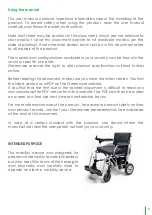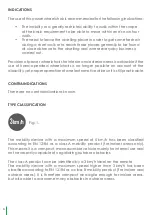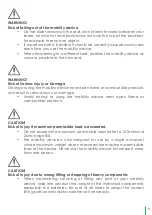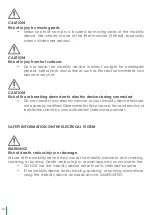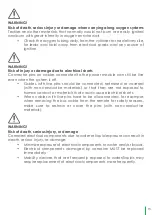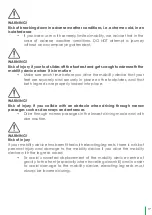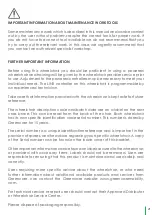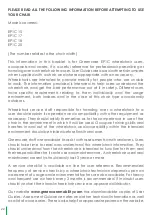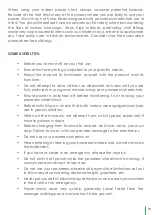
WARNING!
Risk of damage or injury if mobility device is accidentally set into motion
• Switch the mobility device off before you get in, get out or handle
unwieldy objects.
• When the drive is disengaged, the brake inside the drive is
deactivated. For this reason, pushing the mobility device by an
attendant
•
is only recommended on flat surfaces, never on gradients. Never
leave your mobility device on a gradient with its motors disengaged.
• Always re-engage the motors immediately after pushing the mobility
device (refer to Pushing the mobility device in freewheel mode).
WARNING!
Risk of injury if the mobility device is switched off while driving, for example
by pressing the On/Off Button or disconnecting a cable, due to it coming to
an abrupt, sharp stop
• If you have to brake in an emergency, simply release the joystick
which will bring you to a halt (refer to the remote user manual for
more information).
CAUTION!
Risk of injury when transferring mobility device to a vehicle for transport with
the occupant seated in it
• It is always better to transfer the mobility device to a vehicle without
the occupant seated in it.
• If the mobility device needs to be loaded up a ramp together with its
driver, ensure that the ramp does not exceed the rated slope
• If the mobility device does need to be loaded using a ramp which
exceeds the rated slope (refer to 12 Technical Data, page 83), then
you must use a winch. An attendant can safely monitor and assist the
loading process.
• As an alternative you can use a platform lift. Ensure that the total
weight of the mobility device including the user does not exceed
the maximum permissible weight for the platform lift or winch if you
are using.
10





